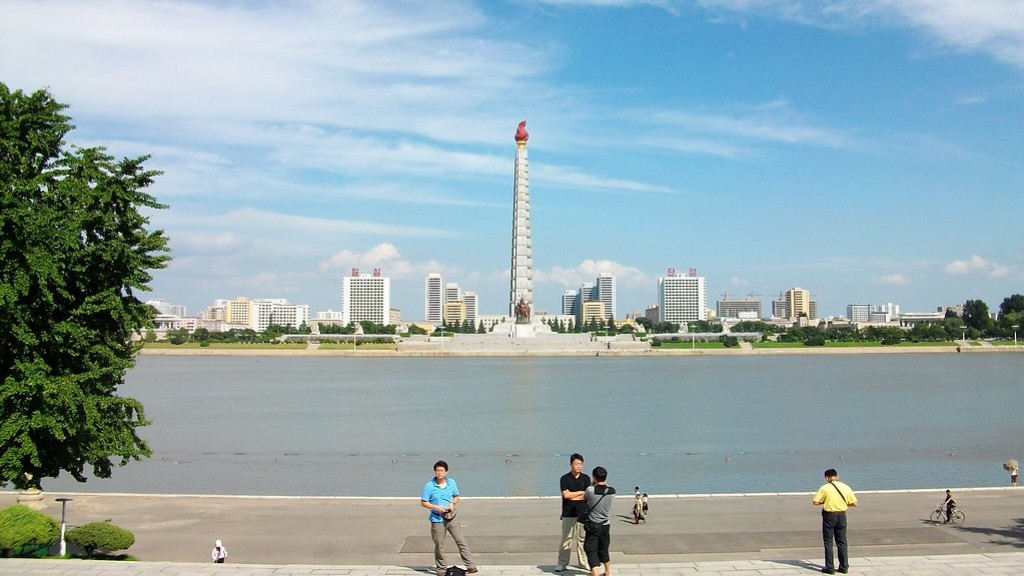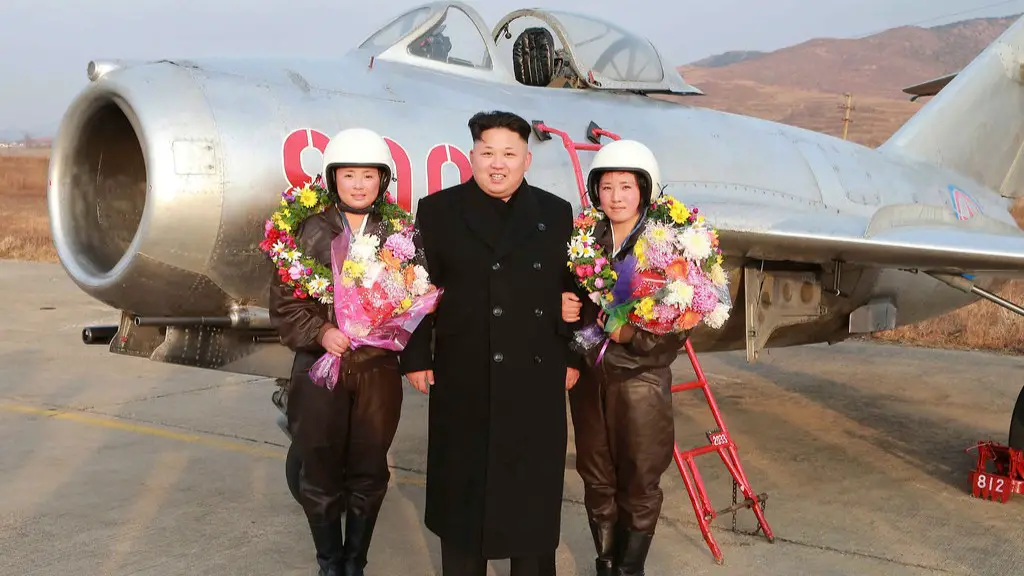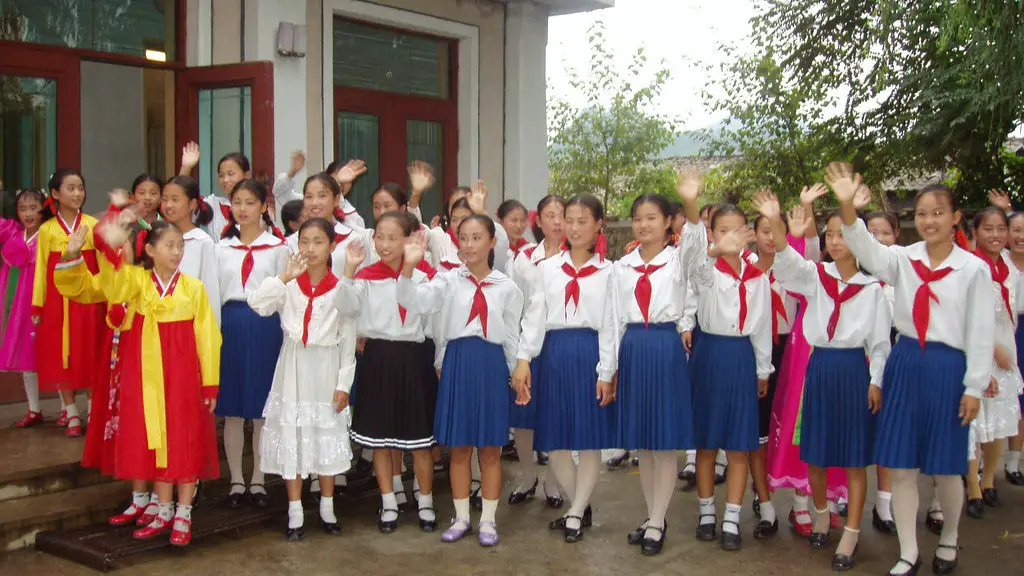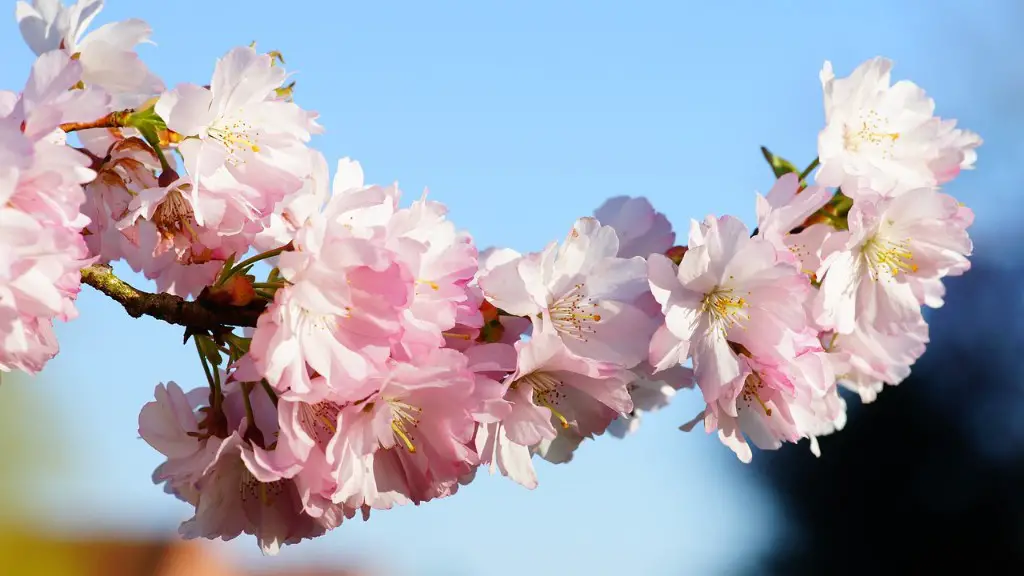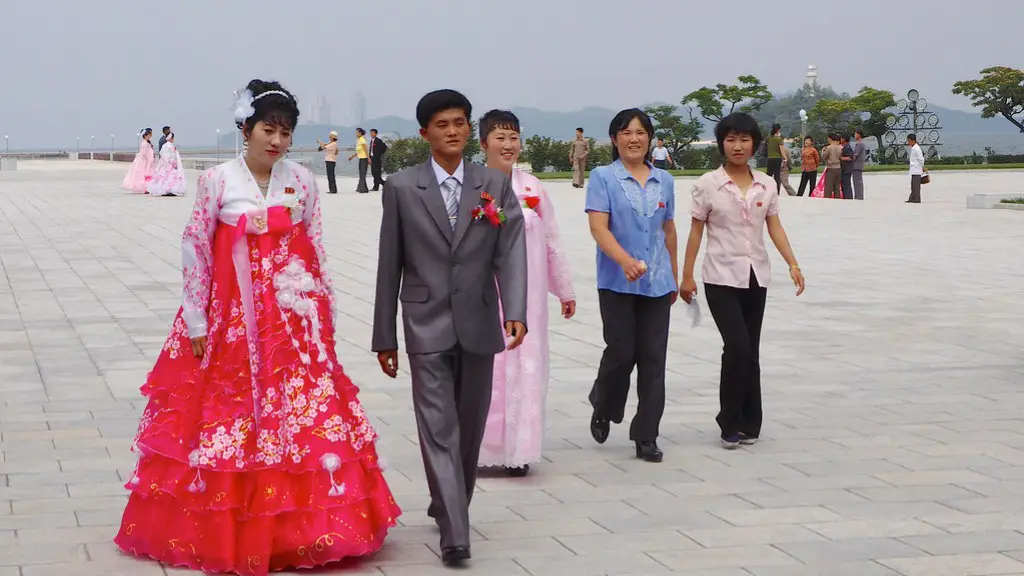The turbulent relationship between Japan and North Korea has a long history stemming from ancient times. In particular, the animosity between the two countries dates back to the period of Japanese colonialism from early 1900s when Korea was under Japan’s rule. Both countries continue to feel the reverberations of Japan’s colonial presence in the Korean peninsula and this, in combination with the strong cultural identities of modern Japan, have heavily influenced the current animosity between them.
To fully comprehend why Japan and North Korea are enemies today, it is necessary to revisit the events of the 20th century that contributed to the current state of tensions between them. In 1910, Japan officially annexed the Korean peninsula and thus secured their hold in the region. During this period of Japanese rule, many Korean citizens were subjected to deadly labor, tax punishments, and military conscription against their will. Nationalistic fervor also spread throughout Japan as they sought to propagate the notion of a superior Japanese identity. This made life more difficult for Korean minorities within the Japanese society.
The Japanese occupation of North Korea ended in 1945 with the Allied victory in World War 2. This event, however, was followed by the Korean War which further intensified the animosity between Japan and the Korean peninsula. The war was fought between North and South Korea and lasted between 1950 and 1953. During this period, the US and UN forces, led by the US, backed South Korea, whilst China and the Soviet Union supported North Korea. Japan also played a role in the hostilities by placing a Naval Support Force for the UN Command.
Furthermore, the tension between these two countries has been further exacerbated by North Korea’s recent nuclear developments. In 2006 and 2009, North Korea conducted two underground nuclear tests despite international pressure to discontinue the program. These two events acted as a catalyst for the conflict between Japan and North Korea as the Japanese government felt threatened by North Korea’s potential to build and launch nuclear weapons. This has resulted in the UN Security Council implementing sanctions on North Korea.
The current state of Japan and North Korea’s relationship is complex and understandably tense. Despite multiple attempts at creating peace, the spiteful history between the two countries has left a lasting resentment that still simmers in modern times. Many experts suggest that in order for both countries to stop being enemies, it is essential that they agree on a timeline for reparations, normalization of diplomatic ties, and economic aid from Japan. This type of resolute action would go a long way to heal the wounds of the past.
The Role of South Korea in the Conflict
South Korea has had a significant role in intensifying or easing the conflict between Japan and North Korea. In 1965, Japan and South Korea signed the Treaty on Basic Relations which officially normalized relations between the two countries. This event was a major step forward in reconciling the issues from the colonial era and it allowed South Korea to receive reparations from Japan. It is worth noting, however, that the Treaty did not make specific reference to North Korea, leaving the North out of the settlement.
Since then, South Korea has largely maintained a neutral stance towards their northern neighbour. The South Korean government has secured multiple summits with North Korea with the intention of reducing tensions and building bridges of diplomacy. Leaders from both regions have made diplomatic efforts in the past, such as when North Koreans leader Kim Jong Il and South Korean President Kim Dae-jung met in 2000, creating what is known as the ‘Sunshine Policy’ in an effort to reduce animosity.
In spite of South Korea’s best efforts, however, the relationship between Japan and North Korea remains fraught. Part of this is due to the contentious history shared by the two countries and, to a certain extent, South Korea’s presence in the middle of it. South Korea, in a way, has been an example of creative ways through which diplomacy can manage issues from the past. One can only hope that sometime in the near future, Japan and North Korea will find a way to put aside their hostilities and finally find a peaceful co-existence.
Cultural Exchange and International Forums
Cultural communication may be one of the most effective means of reducing the animosity between Japan and North Korea. There have been multiple attempts to reduce the hostility towards each other in religious, academic, and other cultural contexts. In 1994, the Japanese organization, Japan-Korea Cultural Exchange Association, was established in an effort to create inter-cultural dialogues and promote an understanding between the two countries. Although the attempts at reducing the animosity between Japan and North Korea through culture have been limited, it is a step in the right direction.
Another important move towards promoting understanding is through international forums. The ASEAN Plus Three (APT) Forum, regularly holds summits between Japan, North Korea, as well as South Korea and other members in the region. These events are particularly effective in depicting a unified East Asia in which Japan and North Korea seek to create investments in the region and discuss peace and regional cooperation. Moreover, in recent years there have been multiple moves of Japanese Prime Minister Shinzo Abe to re-open dialogue with North Korea in order to find a resolution to their differences.
Although there has been only limited progress in reducing the animosity between Japan and North Korea, diplomatic efforts from both sides have created a hopeful outlook for a better relationship. International forums and avenues for cultural exchange are setting the groundwork for a new era in which both countries can move on from their tumultuous past and work together to build a more peaceful and respectful future.
The US and its Role in Conflict Resolution
Since the end of the Korean War in 1953, the US has been one of the major powers supporting South Korea against the North. It has established a strong economic and military presence in the region and has largely taken the upper hand in regional stability. After the withdrawal of Soviet forces from North Korea in 1991, the US primarily took on the responsibility of managing North-South issues and has been actively involved in the dispute since. This includes providing economic aid, overseeing the Kaesong Industrial Complex and other initiatives that seek to bridge the gap between North and South.
The US has largely been the driving force in encouraging Japan and North Korea to resolve their differences peacefully and diplomatically. The US government has pushed for the two countries to abstain from making inflammatory statements and instead maintain a level of respect and mutual understanding. Further to this, the US has also provided incentives to North Korea as a way of encouraging them to uphold peaceful relations with their neighbour. These have included economic and energy aid as well as US humanitarian assistance to North Korea.
The US has also played a major role in mediating the conflict between Japan and North Korea on the international stage. During multiple diplomatic events, the US has offered tough criticism to both countries in an effort to find a resolution to their differences. The US administration has consistently called for constructive dialogue between the two sides, which it believes is the only way for progress to be made in the long term.
The US has, thus far, been successful in influencing both sides to search for peace and stay away from aggressive behavior. As the two countries continue to work towards finding solutions to their disputes, it is likely that the US will continue to be involved and serve as a valuable mediator between Japan and North Korea.
Public Perception of Japan and North Korea Divided
The relationship between Japan and North Korea is complex, and the public perception of the two countries among different individuals can be drastically different. A survey conducted in 2018 by Asan Institute for Policy Studies in South Korea reported that over 95 percent of those polled had a negative opinion of North Korea. Similarly, the same survey also revealed that over 90 percent of those polled had a positive opinion of Japan. This indicates a significant divide in public opinion between these two countries, which has a strong influence on their relationship.
When examining the public’s opinion on Japan, it is clear that respect for their cultural heritage plays a major role. This is highlighted by a number of popular symbols from Japanese culture, such as manga, anime, judo, and karate, that have been embraced by other countries around the world. These expressions of admiration, however, do not necessarily translate into support for the Japanese government’s policy when it comes to North Korea. The public’s opinion on this matter often differ greatly depending on the country of residence, with opinions in South Korea tending to differ greatly to those in Japan.
In addition to the public’s opinion, media coverage of the relationship between Japan and North Korea can also have a major impact. Many news organizations seek to frame the story in a way that generates more viewers or clicks, often emphasizing any conflicts between the two countries in order to drive sensationalism. This can have a damaging effect as it further reinforces the divide between the two countries and their citizens, making it that much harder for diplomacy to bridge the gap.
Overall, the public perception of Japan and North Korea is constantly shifting, with some seeing the two countries as potential partners, while others view them as bitter enemies. With tensions between the two sides remaining high and their relationship strained, only time will tell whether they will ever find the path to peace.
The Japanese Government’s Position in the Conflict
The Japanese Government has been relatively clear with regards to their stance on Japan and North Korea’s relationship. Unlike many Western countries, the Japanese government has taken a hardline approach when it comes to North Korea, insisting that only diplomatic discussions will progress reconstruction of the relationship between the two countries. Prime Minister Shinzo Abe has continually elaborated on Japan’s position, firmly advocating for the return of Japanese citizens kidnapped by North Korea and for the removal of nuclear weapons from the Korean peninsula.
The Japanese government has also taken steps towards economic sanctions on North Korea in response to their nuclear activities. It has frozen North Korean assets in Japan and imposed export restrictions on North Korean goods. These measures were taken in response to North Korean weapons tests and its refusal to address Japanese concerns on the abduction issue. To further isolate North Korea, Japan has joined a United States-led international campaign to step up pressure on Pyongyang.
Japan’s primary focus, however, has been in finding a diplomatic resolution to their differences with North Korea. Past Japanese governments in the past have reached out to North Korea in an effort to resolve potential crises. Former Prime Minister Junichiro Koizumi visited North Korea in 2002, after which North Korea admitted to kidnapping several Japanese citizens and allowed their relatives to visit them in Japan. This was seen as an effort to normalize relations between Japan and North Korea, although follow up attempts at peace failed due to North Korean reluctance.
More recently, Prime Minister Abe has been pushing for a summit with North Korean leader Kim Jong-un in an effort to reduce the hostility between the two countries. The Japanese government believes that face-to-face dialogue between the two countries may finally bring an end to the current state of animosity and provide a path towards reconciliation. So far, the summit has yet to take place, however, and until it does, the oppressive state of affairs between Japan and North Korea is likely to remain.
